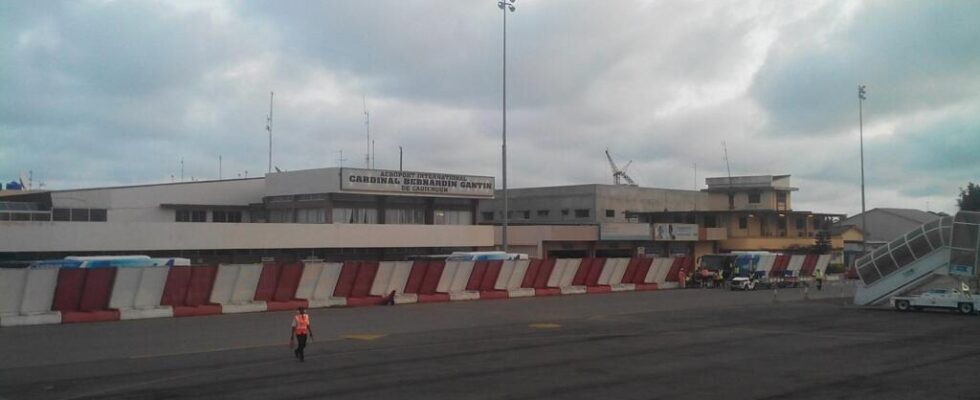Benin welcomed its first charter of Beninese migrants from Tunisia on Tuesday, May 28. The 173, initially candidates for immigration to Europe, returned voluntarily without ever reaching their dream destination. The repatriation was possible thanks to the support of the International Organization for Migration (IOM) and the European Union. At the foot of the footbridge, some recount their journey which lasted 11 years.
2 mins
With our correspondent in Cotonou, Jean Luc Aplogan
At the foot of the footbridge, a welcoming committee made up of Beninese, IOM and EU officials. Women, men, children, young people in jogging suits, jackets or sneakers get off the plane, greet and board three buses for the arrival hall.
After the formalities, Ahmadou Cissé, who left 11 years ago, recounts his misadventure to the press. His route, Djougou in northern Benin, Niger, Libya and 11 hours of walking before arriving in Tunisia. In 2013, he survived a shipwreck while trying to cross to Europe. The trip cost him dearly: 1.5 million CFA francs. But he will never arrive in Lampedusa.
Untenable, this voluntary return had to be accepted. “ In Tunisia, currently, it’s hot, it was God who made me not die in the water. I can’t tell my brothers not to leave, but the adventure is not easy. »
Madame Myrina Amoussouga Adam-Bongle, director of Beninese Abroad, was mandated to welcome them: “ It was very upsetting. I am very happy to welcome them into their home, into our home, and I would like to invite them to seize the opportunity to start a new life, a new start. »
N’diaye Fatou Diallo, representative of the IOM, tells us what lies ahead: “ Welcome them, assist them, restore their confidence. We also have the reintegration component that we have been doing for several years. »
The 173 migrants are accommodated in a hotel for the first night, they will then return home on Wednesday May 29. The help has begun: according to our information, they received a kit and a sum of money.
https://www.rfi.fr/fr/podcasts/grand-reportage/20240430-le-supplice-des-migrants-subsahariens-en-tunisie
